We’re seeing airline industry employees negotiating some huge pay increases at the moment. To me this raises an interesting question — who will be paying for this? While the obvious answer is that these costs will be passed on to passengers, I’m not sure it’s that straightforward.
In this post:
Airline labor costs are increasing massively
Let me start by making it clear that I’m not looking to debate the merits of pay raises for airline employees, but rather just want to discuss the economics of it. I keep having pilots comment how they should make more money than surgeons, because they have hundreds of lives in their hands on a daily basis rather than one at a time, so I don’t think it’s a terribly productive discussion.
Airline employees had a really tough couple of years at the start of the pandemic, and certainly weren’t in a position to negotiate any new contracts. With travel demand having recovered and airfare being high, many employee work groups are striking while the iron is hot, and are trying to lock in lucrative contracts.
Just to give some examples:
- Delta pilots have ratified an industry-leading contract, which is worth $7.2 billion over the course of four years
- American’s CEO has offered to match Delta’s contract, and has stated that captains could make up to $590K per year; an agreement in principle has now been reached, but we don’t know the details
- United’s pilots union has said that they want a more valuable contract than what Delta has ratified
While pilots will probably be the most costly work group for airlines, it will go beyond that. For example, American’s flight attendants are seeking pay increases of roughly 50% over the coming years, though it’s anyone’s guess how successful they are.
I think it’s important to put some of these amounts into context. Up until now, 2016 to 2019 were the four best consecutive years that the airline industry has ever seen. During the best of times, here are the net profits of Delta and American:
- Delta’s total net profit over those four years was just over $16 billion
- American’s total net profit over those four years was just under $7 billion
So Delta’s pilot contract alone is worth nearly half of those net profits. We have to assume American’s new contract is worth at least as much as Delta’s, so it would be worth more than all of the company’s profits.
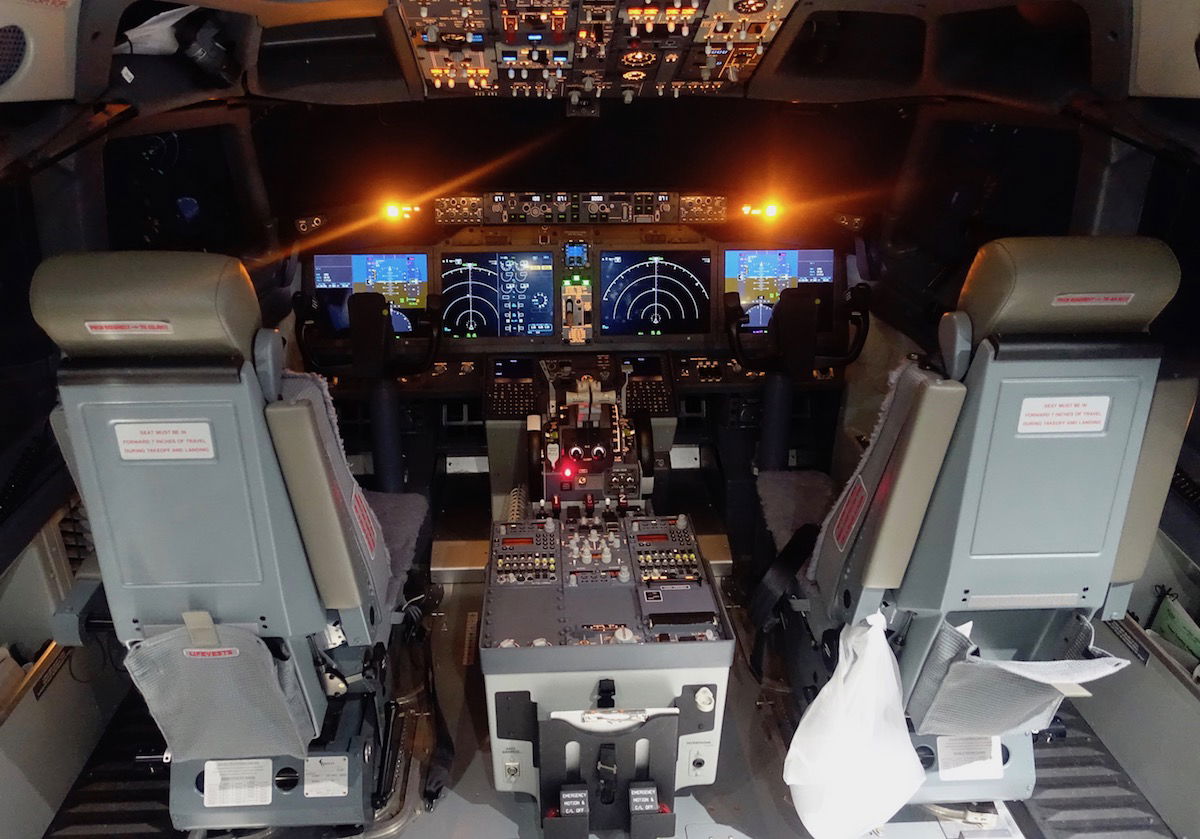
These are fixed costs that won’t go down
Airlines have obviously faced their fair share of challenges over the years, from 9/11, to coronavirus, to recessions, to high fuel prices. They’ve weathered these in a variety of ways, ranging from receiving government support, to bankruptcy, to just taking losses for some period of time with hopes of better days. The airline industry does love to privatize profits and socialize losses.
For airlines, the challenge with these wage increases is that these aren’t just a temporary challenge that they have to deal with, but rather this will become the new normal. Short of bankruptcy, I can’t imagine employee work groups will be willing to accept lower wages in the future.
Furthermore, the airline industry is low margin during the best of times, and on top of that is highly cyclical. While we love this industry, it’s a terrible industry for investors (well, unless you’re betting on the peaks and valleys).
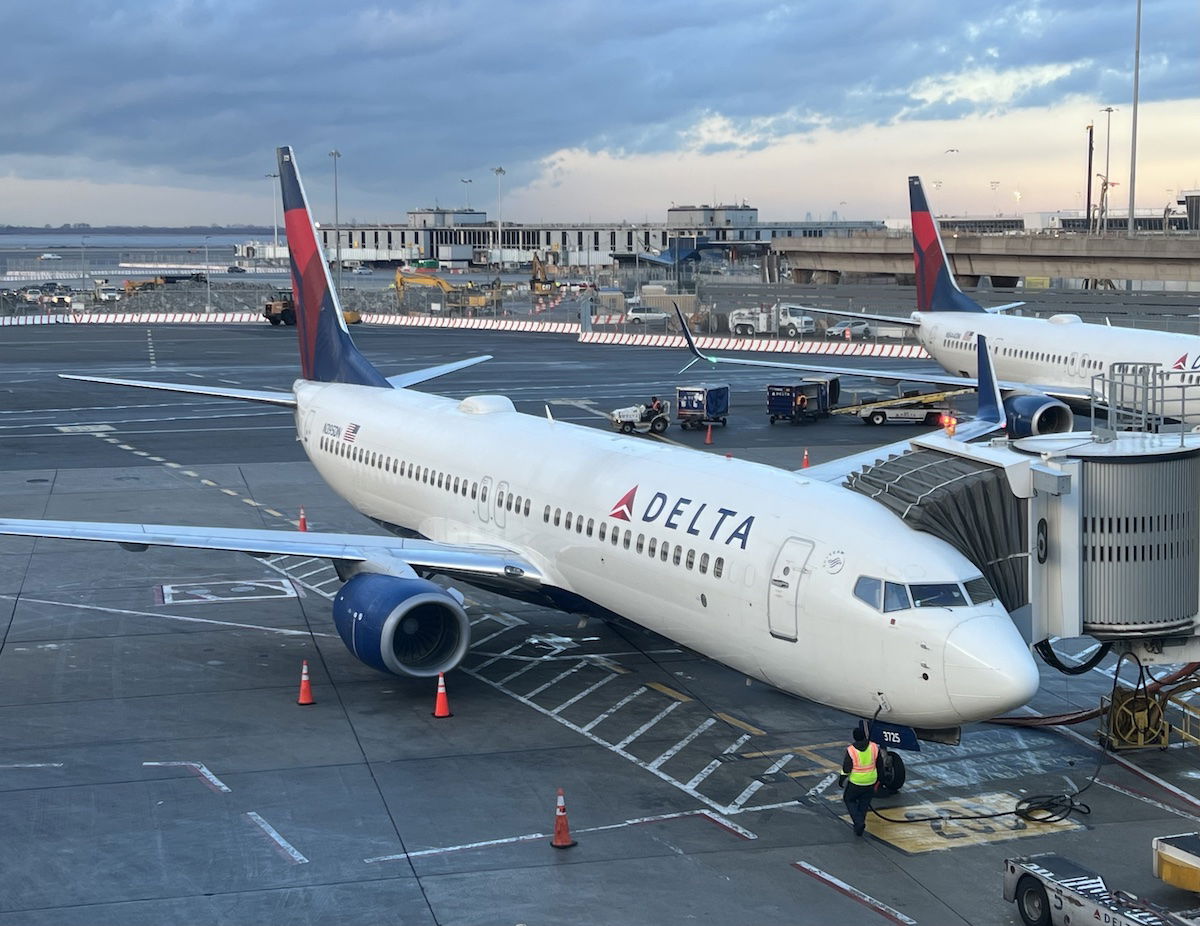
Who will be paying these higher wages?
This brings me to what I think is an interesting question… how exactly will major airlines having several billion dollars in additional (more or less) fixed expenses be paid for?
Of course the obvious answer is that passengers will pay for this in the form of higher fares. However, it’s not really that straightforward:
- Airline pricing has never been based on the cost of providing air transportation, but rather has been based on how much consumers are willing to pay, which is all about supply and demand; because airlines can’t efficiently adjust capacity, any change in demand can greatly impact the pricing power airlines have
- The airlines with significantly higher labor costs will have to compete with airlines that have significantly lower labor costs; this includes many foreign airlines, as well as more airlines that could pop up in the United States, especially as the pilot shortage subsides
- Airline executives seem to take the approach that the industry will just keep getting more and more profitable (remember when former American CEO Doug Parker said the airline would never lose money again?), though there’s a limit to that
So am I the only one who is curious what exactly the plan is here? Is the idea “oh, we’ll just be able to generate a few extra billion dollars per year in revenue forever?” Or will this permanently change the economics of airlines for investors, and lower margins for them?
Frankly I’m a bit surprised we haven’t seen more of a drop in the price of many airline stocks as these kinds of contracts have been negotiated, because they materially alter the economics for some airlines. If American ratifies a new pilot contract that’s equivalent to Delta’s (and that seems like a given), how exactly do you sell the idea of “hey, we’re giving our pilots a pay increase greater than our net profit during the best of times, but don’t worry, we’ll just make more money?”
Honestly, no shade is meant by this toward any party. I don’t blame airline employees for trying to make as much money as they can. I respect their professionalism, and they’ve had a lot taken away from them over the years. I just wonder if airlines are headed back into financial ruin if there’s a dip in demand, or how exactly this will all play out.
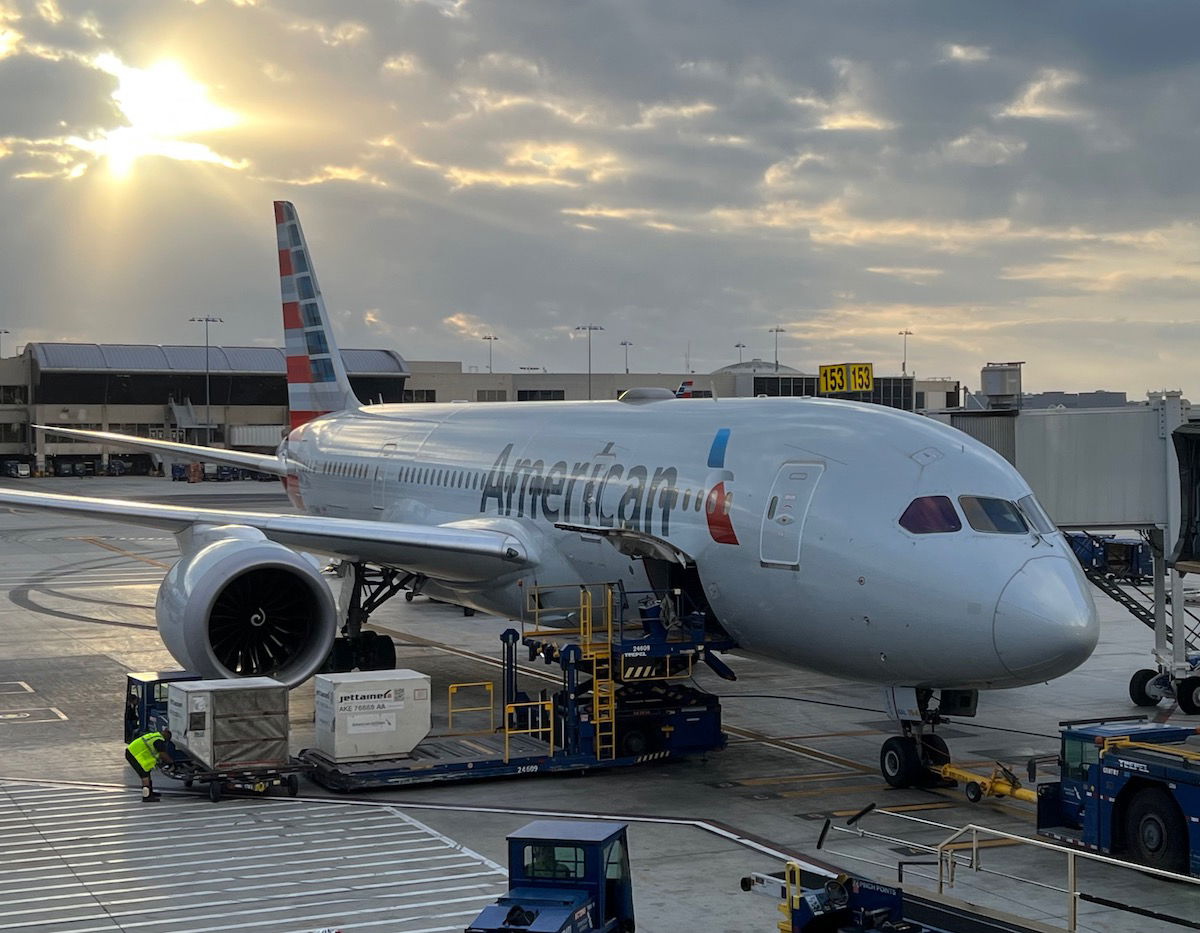
Bottom line
Pilots at US airlines are securing lucrative new contracts. The incremental value of a new contract for American pilots would almost certainly exceed American’s profits during the best of times.
I think airlines have come a long way since filing for bankruptcy was a standard way of dealing with the realities of the industry. However, it seems like these new contracts may be the biggest new hurdle to profitability that they face.
Pricing in the airline industry has never been based on a concept of charging cost plus some percent as a margin. Airlines get away with charging what they can, and airlines seem to be operating under the assumption that margins will only keep increasing forever.
What’s your take on how this plays out? Will these much more lucrative contracts lead to airlines all raising fares in unison, somehow? Will they simply wipe out most profits at airlines? And what happens when demand drops?
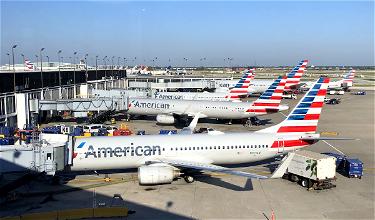

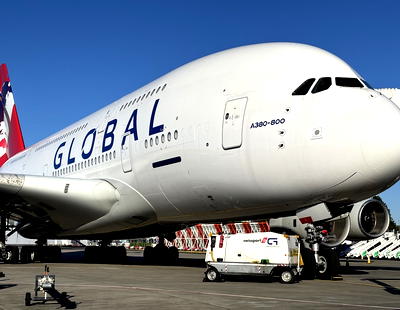
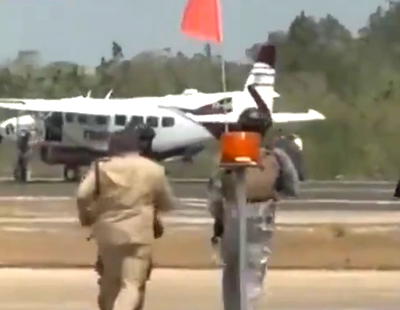

do some simple math and you'll see the impact is far smaller than you think. On an individual basis. pilot salary/ FA salary per hour divided by the 170-250 people on board. that comes to Dollars/ cents.
Flight attendant: 68$(/hour)/210 people (average )=$0.32. multiply by 35% (after 5 years)=$0.43 (an increase of $0.112).
take a nice long 10 hour flight with 8 (minimum crew) flight attendants and your fare goes up a total...
do some simple math and you'll see the impact is far smaller than you think. On an individual basis. pilot salary/ FA salary per hour divided by the 170-250 people on board. that comes to Dollars/ cents.
Flight attendant: 68$(/hour)/210 people (average )=$0.32. multiply by 35% (after 5 years)=$0.43 (an increase of $0.112).
take a nice long 10 hour flight with 8 (minimum crew) flight attendants and your fare goes up a total of $8.96. figure 4-5 times that for the 3 pilots..(180/210 x 10hoursx3 pilots) = $25.71. + $8.96= $34.67.
When you see your fare go up $200, ask the CEO where the rest goes.
Even if in the very short term fares do not go up it will in the long term.
Taxpayers will pay. As the less profitable airlines enter a suicide pact between labor and management by increasing costs with zero increase in productivity there can only be one answer. Prices rise - demand declines, bankruptcy ensues. Amazing the number of people who think they will like their job better with higher wages. Apparently once you're a 1%er its hard to prioritize job satisfaction over money. I'll continue to pay a little more to fly...
Taxpayers will pay. As the less profitable airlines enter a suicide pact between labor and management by increasing costs with zero increase in productivity there can only be one answer. Prices rise - demand declines, bankruptcy ensues. Amazing the number of people who think they will like their job better with higher wages. Apparently once you're a 1%er its hard to prioritize job satisfaction over money. I'll continue to pay a little more to fly Delta or a foreign carrier where I feel valued. On UA and AA it seems like the passengers are treated like a necessary evil. NB Many surgeons work 80 hour weeks, not 80 hour months. So what should pilot pay be compared to surgeon pay?
I trust a pilot before I trust a surgeon. Surgeons dont go down with the plane when he makes a mistake.
You can't compare pilots (or bus drivers for that matter) to surgeons as the difference is surgeons have to 'save' someone who is in trouble, pilots aren't saving 'anyone' (yes in the case of an emergency they would). But it is to say surgeons constantly and consistently deal with life and death - 99.9% of pilots are never put in that situation.
Why does nobody ask this question about massive executive compensation packages? It's only when workers get a raise that labor costs somehow become an issue.
people have asked and the response is noted below.
first, executive compensation is a pretty small amount of total labor expense at any company.
second, the large gap that exists between frontline and exec compensation is reflective of American business as a whole.
third, airline employees are much higher paid on average than employees in other industries.
none of which changes that airlines are increasing pay at a faster rate than...
people have asked and the response is noted below.
first, executive compensation is a pretty small amount of total labor expense at any company.
second, the large gap that exists between frontline and exec compensation is reflective of American business as a whole.
third, airline employees are much higher paid on average than employees in other industries.
none of which changes that airlines are increasing pay at a faster rate than American companies as a whole - which validates the question that Ben raises.
Legacy carriers and their global networks have better revenue generation potential due to the relatively stronger position of US airlines to their global counterparts post-covid while Delta in particular has by far the strongest revenue generation potential.
If we get to large salary increases at Southwest, then the question will be legitimately asked how they will pay for the massive salary increases which their business model appears to be less able to support.
The real place to look for cost savings is stop the billions in company buybacks each year given to shareholders. These buybacks are money that should be used to take care of the workforce. Simple google search on airline buybacks and shareholder kickbacks will give people not in the industry a different perspective. The companies don’t want uneducated consumers to see them, so they can hide these pay increases as costs towards ticket fares. The...
The real place to look for cost savings is stop the billions in company buybacks each year given to shareholders. These buybacks are money that should be used to take care of the workforce. Simple google search on airline buybacks and shareholder kickbacks will give people not in the industry a different perspective. The companies don’t want uneducated consumers to see them, so they can hide these pay increases as costs towards ticket fares. The evil unions want to make the consumer pay more, while shareholders remain fat cats.. most of the buybacks lead to eventual stock losses anyhow, and only temporary inflate the stack value for the hedge funds to make a few shirts and even more money off the employees backs.
when the CEO makes 1411 times the lowest paid worker. it's not that small of an amount.
533 times what a flight attendant makes and 200 times a Captain.
Air travel should reflect the cost of hiring, training, engaging and retaining the most qualified and talented people, just like any product and service provider. I believe air travel pricing does NOT reflect this otherwise accepted principle. More than half of the planet’s population travels by commercial aircraft, mostly, at prices that do not reflect the real cost of mobilizing employees and assets at a rate that in other industries would be considered wasteful.
How about airline executives who sit around and do nothing get a pay cut? The US based airlines do crap and expect high pays compared to their international counterparts. Do better for your what you think your pay should be rather than what you think you are entitled to.
again, this is true of US companies as a whole - at least the difference in compensation between the highest paid and average workers.
There have been many socialism-driven efforts to limit US exec pay all w/o success.
The conclusion is pretty clear. Just as if non-pilot airline employees don't like the high pay that pilots make, then become a pilot.
If you don't like the gap that exists between execs and the...
again, this is true of US companies as a whole - at least the difference in compensation between the highest paid and average workers.
There have been many socialism-driven efforts to limit US exec pay all w/o success.
The conclusion is pretty clear. Just as if non-pilot airline employees don't like the high pay that pilots make, then become a pilot.
If you don't like the gap that exists between execs and the average worker, then figure out how to be one of those high paid execs.
And if you don't succeed, then you have to admit they have a skill which you don't.
None of which changes that executive salaries are a pretty small part of the total salary and benefits for airlines, esp. since airline workers as a whole - even excluding pilots - make well above average salaries and benefits.
The average American worker would say the same thing about airline employees that you say about executives.
Business travel is in decline - so no growth there. Airlines riding on higher fares, and boom in travel post Covid. All that could change if the economy tanks.
I guess CC companies, as airlines raise mileage levels and entice with CC benefits - but if rewards get too high - passengers will figure that out.
I suspect we will see higher fares and flight cuts. Off peak flights may be cut and smaller airports cut as well.
We'll be hearing soon enough about airlines being broke and no longer able to pay the ridiculous wages! These are not sustainable in my opinion and the flying public will only tolerate high prices for so long before they say forget it and just drive!
not sustainable? Do some math . YOU pay $0.32/hr to each flight attendant on your flight, and $0.85/hr to the pilots. tell me how they are overpaid from your $5000,00 BC ticket?
All US carriers reported record profits in the three to five years prior to Covid. Within less than a month after the world was shut down, their CEOs flew to Capitol Hill in private jets pressuring politicians for an immediate huge bailout. Numbers are inflated, cooked and exposed when we face an economic downturn. Of course, investors, employees and taxpayers/ consumers pay the full tab. We remember when AA's FA union voted out Horton because...
All US carriers reported record profits in the three to five years prior to Covid. Within less than a month after the world was shut down, their CEOs flew to Capitol Hill in private jets pressuring politicians for an immediate huge bailout. Numbers are inflated, cooked and exposed when we face an economic downturn. Of course, investors, employees and taxpayers/ consumers pay the full tab. We remember when AA's FA union voted out Horton because they believed Parker would protect and preserve their interests. CEOs enjoy the golden parachute when the merger takes place. US businesses' strategies only emphasize quarterly profits. Their CEOs compensation packages must be vested for five years after their contracts end so that the claw back will kick in if they are found liable for the company's losses. The unions must take pay cuts and benefits reduction when recession hits. The CEOs ' employment is short but their compensation/ severance packages set them for life.
while true, you forgot to mention that democracies around the world poured trillions of dollars into their economies during covid and continuing to do so, distorting the free market and incentivizing exactly the type of behavior we are now seeing from the banking industry - just 15 years after a banking-induced recession.
While your criticism is valid, it is reflective of the entire market economic system and hardly applies just to airlines.
none of which changes that the current round of pay increases has been completely consensual. No strikes. No imposed settlements.
Management and labor agreed to the terms.
Management presumably can pay for it or has a plan to figure out how to.
As noted, credit card and ancillary spend is becoming a much bigger revenue stream.
And the global 3 are much more capable of sustaining high costs because the current strong...
none of which changes that the current round of pay increases has been completely consensual. No strikes. No imposed settlements.
Management and labor agreed to the terms.
Management presumably can pay for it or has a plan to figure out how to.
As noted, credit card and ancillary spend is becoming a much bigger revenue stream.
And the global 3 are much more capable of sustaining high costs because the current strong demand environment favors a complex pricing model.
And the big 3 clearly see a shift in economic power back to the legacy airlines after 45 years (since deregulation in 1978) where low cost carriers seemed to have the upper hand.
High salaries by legacy carrier employees won't be the problem.
If the economy falls apart, low cost carriers will fail first. It is not a surprise that AA, DL and UA are all projecting much higher profit margins this year than B6, NK etc - and higher than WN as well, although they are still recovering from their self-inflicted Christmas 2022 wounds.
Great article. I also am concerned the increased cost of operation for the airlines. The airline is more dependent on leisure travelers than before and they are more flexible to destinations and method of travel to reduce cost when there is money crunch. When this post Covid travel fever dies down, I wonder if airlines will realize they made a mistake
Also to add, airlines like Singapore that paid large bonus might be doing the right thing instead of giving large raises
I worked in Singapore in the 80's for the government. That's how compensation was handled then. The end of year bonus was measured in months of salary. I read that SQ got a bonus of 8 months salary this year because of good economic performance.
I admit that I left Singapore in a year of decreased expectations because Lee Quan Yu stated the next year bonus could be 0 (the current year had been 6 months).
The blindly loyal people called, Concierge Key, Executive Platinum, 360, and Diamond, Global Services, Premier 1K, and Chairman’s Circle.
Including resident loyalists such as @DCS and @Tim Dunn.
feel free to show us how any single person you named will bear the price more than others.
The failure of your response is that you can't counter that DL really has an enormous revenue generation advantage that allows IT to figure out how to pay higher labor costs - but that is far less clear for other airlines
To refer to airline elite travelers as “blindly” loyal is ignorant. The reason I’m currently EXP with AA is because they give me the best value from where I live aligned with my travel needs. If, and when, DL or UA can better meet my needs, I’d gladly shift. I’m sure prices will go up uniformly and the flying public will bear the burden, as usual.
@Tim Dunn @Donna
Both of you have answered the question.
The context in this blog post is footing the bill, as cash to pay labor.
The more cash you give to the airline the more cash they have to pay labor.
@Tim Dunn "revenue generation advantage" as in paying more cash. (P.S. I'm not countering anything, no need to defend DL. I, in fact agree.)
@Donna "they give me the best value"...
@Tim Dunn @Donna
Both of you have answered the question.
The context in this blog post is footing the bill, as cash to pay labor.
The more cash you give to the airline the more cash they have to pay labor.
@Tim Dunn "revenue generation advantage" as in paying more cash. (P.S. I'm not countering anything, no need to defend DL. I, in fact agree.)
@Donna "they give me the best value" as in willing to pay more cash if the (perceived) value is greater.
A simple test, did you ever pay anything more than basic economy on these airlines you hold top status?
If the answer is yes, you already paid more cash. We're not talking about value here (which you probably get more out of it), just pure cash to foot the labor cost.
By the way, the blindly loyal people, doesn't mean it's a bad thing. Just like conservatives or liberals are not a bad thing or bad people.
Well after being in the industry for 40 years I have seen it all . Good Times With good management . Bankruptcy with loss of retirement with bad management. As long as the planes are full pilots should get their share of money as just as important work rules. I guess Maybe the only thing worse Would to be a journalist .
It’s the circle of life. Unions negotiate too much, company gets strapped, files for bankruptcy, then they abrogate the union contracts. It’s beautiful in its own way.
Interesting post, but
The airline industry is kind of an interesting industry from a labor perspective in that it combines aspects of "blue collar" or "essential" work (the most important work has to be in-person, it is consumer facing, often times unionized) and "white collar" work (the industry itself is seen as more glamorous and prestigious than stuff like construction, plumbing, etc because it involves travel). As we all know, the price of blue collar,...
Interesting post, but
The airline industry is kind of an interesting industry from a labor perspective in that it combines aspects of "blue collar" or "essential" work (the most important work has to be in-person, it is consumer facing, often times unionized) and "white collar" work (the industry itself is seen as more glamorous and prestigious than stuff like construction, plumbing, etc because it involves travel). As we all know, the price of blue collar, in-person labor has increased dramatically, and there simply isn't much airlines can do about it. It is what it is.
In terms of who pays? Consumers will pay, and airlines will rely more and more on cobranded credit card spending. I am guessing American is seeing much more credit card spend due to its Loyalty Points scheme. Expect American to lean even more heavily on the credit card side as labor costs go up. They will also seek to cut costs in the loyalty program. Delicate balance.
Great article. Perhaps airlines are anticipating a reduction in their desktop workforce due to AI? Or maybe banking on a recession in the near future which will provide the opportunity to renegotiate?
Sorry you got bullied on twitter - those union pilots are something else.
first, it is not true that costs have never been a factor in how prices were set. Under the regulated era, airlines were treated as utilities and they did indeed request fare increases from the Civil Aeronautics Board based on their costs.
second, the profit history over any period of the past is not at all what will determine profits for the future. The industry has fundamentally changed from the revenue and cost side but...
first, it is not true that costs have never been a factor in how prices were set. Under the regulated era, airlines were treated as utilities and they did indeed request fare increases from the Civil Aeronautics Board based on their costs.
second, the profit history over any period of the past is not at all what will determine profits for the future. The industry has fundamentally changed from the revenue and cost side but all of the airlines have figured out how they will succeed. Since all of the big 3 have nearly 100 years of history and LUV is half of that, these companies have all significantly adapted.
third, none of the airlines that have agreed to pay raises would have done so if they didn't think they could pay for the higher labor costs. Yes, airlines have bit off more than they could chew in the past but it wasn't really driven by labor costs, even though labor costs were attacked in bankruptcy.
finally, the difference in profits which Ben noted highlight precisely why Delta is in a position to lead the big 4 in pay increases. Delta's position has long been as the most profitable US airline and in the same position among global airlines.
Delta is able to shell out as much as it is for labor because it gets so much more money from non-transportation sources than any other airline. Its Skymiles/Amex revenue is many times higher than what any other airline gets. It has developed Delta Tech Ops into a massive profit generator while AA and UA walked away from that type or scale of contract maintenance for other airlines. And the refinery continues to reduce Delta's costs better than anything AA and UA can do; the only other airline that has a comparable or better fuel cost position is Southwest.
Delta can simply afford to pay its people well and compete for the best labor because of all of its non-transportation revenue.
And let's also be honest that Delta is very likely fully aware that these increases are not sustainable for some of its competitors and so it is happy to see some of its competitors take on costs that will damage them financially.
Delta is incredibly strategy and shrewd and it is leading the industry in how costs are managed.
They know how they will pay for the increased labor costs they are implementing but it is far less clear that other airlines have as equally a valid path.
btw. Delta also has increased flight attendant pay through base rate increases but also boarding pay so this isn't just about pilots. None of the other big 4 airlines have come up w/ an agreement for flight attendants.
Someone's at the punch bowl drinking the DL cool aid....
What nonsense.
just reading industry financials and guidance.
Feel free to check back in a couple years and see if I am right or not.
Delta has enormous revenue generation advantages - exactly how a company pays for increased costs.
They don't care if other companies can't pay the bill in an industry where labor costs are driven by pattern bargaining. In an era where airline employees are more in demand than in decades, DL has...
just reading industry financials and guidance.
Feel free to check back in a couple years and see if I am right or not.
Delta has enormous revenue generation advantages - exactly how a company pays for increased costs.
They don't care if other companies can't pay the bill in an industry where labor costs are driven by pattern bargaining. In an era where airline employees are more in demand than in decades, DL has set its course for how to ensure it gets the employees it needs.
"What nonsense"... No proof is in the pudding, not the cool aid. In simple street terms, how many passengers wait in line to get into AA or UA lounges? DL must be doing something right, like make a profit. What a grand idea for a public stock company in a capitalistic country.
"...pilots comment how they should make more money than surgeons, because they have hundreds of lives in their hands on a daily basis rather than one at a time."
So bus drivers should be paid more than surgeons too?
No ur taking an analogy of two specialized skilled professionals requiring years of experience to a ridiculous simplistic and stupid conclusion…. It shows a a singular lack of intelligence!
Consumers and eventually, the airline's employees themselves. The cost increases and the over reliance on leisure premium travel, however strong it is now, will all eventually trigger further consolidation whether the DoJ likes it, or not.
B6, AS, NK, and F9 will be in play.
Wall Street will figure out a mechanism to enable that consolidation.
It's only a matter of time before the US industry will be AA, DL, UA, WN, and one or two others.